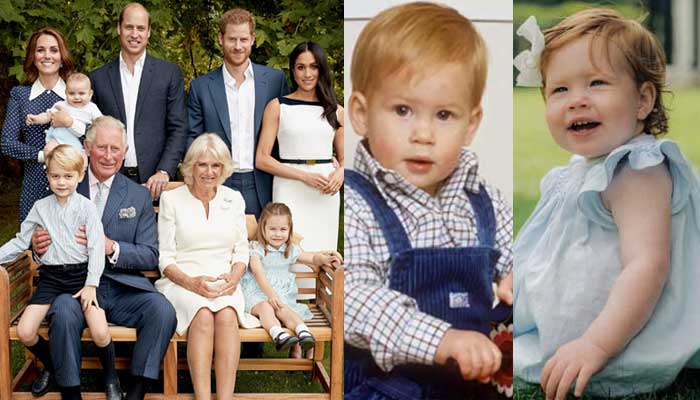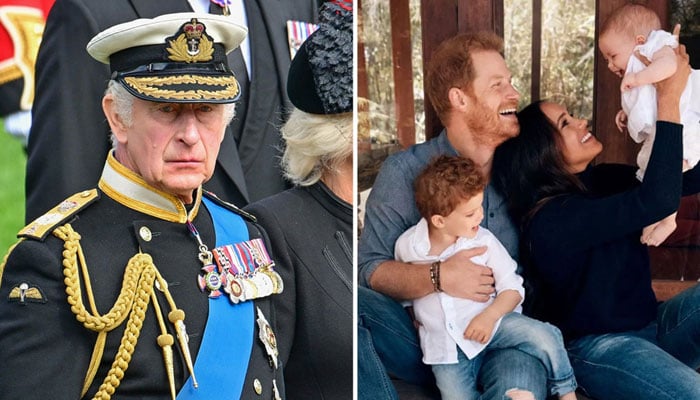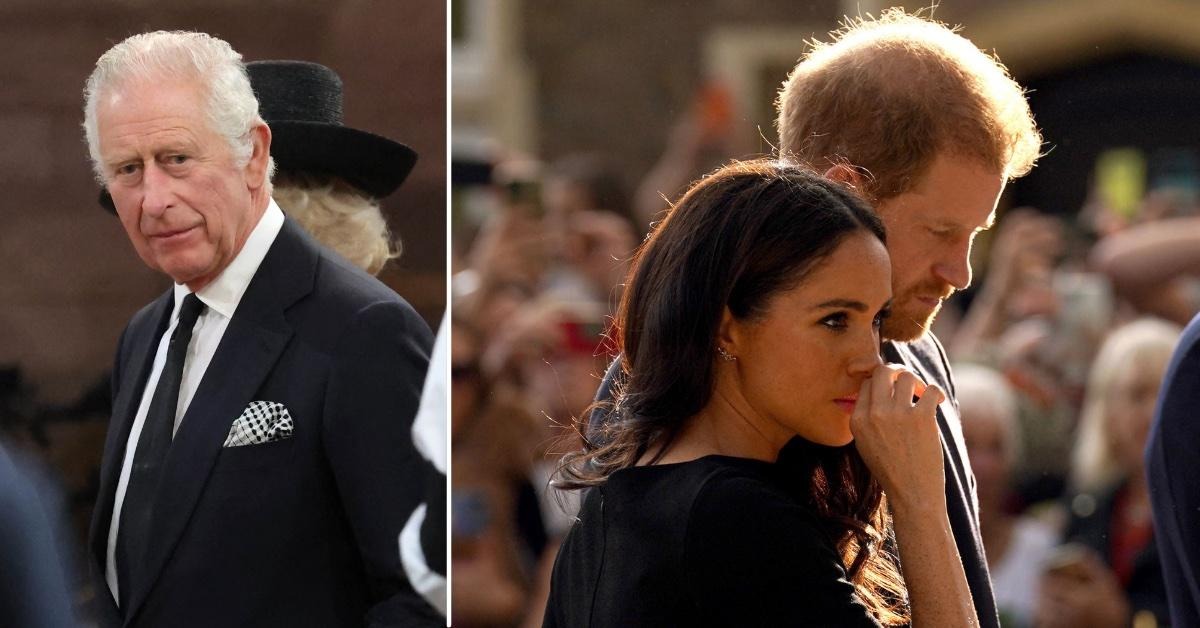King Charles III is not only the monarch of the United Kingdom but also a devoted grandfather. His relationship with his grandchildren—including Prince Harry and Meghan Markle’s children, Prince Archie of Sussex and Princess Lilibet of Sussex—has been the subject of intense public interest. While family dynamics within the House of Windsor have faced scrutiny over the years, there is no verified evidence or official statement supporting claims that King Charles has ever questioned the paternity of Archie or Lilibet.
This article provides a clear, fact-based overview of what is actually known about King Charles’s role as grandfather, the place of Archie and Lilibet in the royal line of succession, and the importance of avoiding unsubstantiated rumors about the royal family.
The Royal Family Tree: King Charles as Grandfather
King Charles III became the reigning monarch following the death of his mother, Queen Elizabeth II, on 8 September 2022. As the father of Prince William, Prince of Wales, and Prince Harry, Duke of Sussex, he has five known grandchildren:
- Prince George of Wales
- Princess Charlotte of Wales
- Prince Louis of Wales
- Prince Archie of Sussex
- Princess Lilibet of Sussex
Archie Harrison Mountbatten-Windsor was born in May 2019 in the UK, and Lilibet Diana Mountbatten-Windsor was born in June 2021 in California, USA. Both children are officially recognized as grandchildren of King Charles III. After Charles’s accession, Archie and Lilibet were eligible for the titles Prince and Princess in accordance with the 1917 Letters Patent issued by King George V, a point confirmed by Buckingham Palace in March 2023 (BBC News, March 2023).

Line of Succession and Titles
The British royal line of succession is governed by constitutional and legal frameworks, not by private rumors. Archie and Lilibet, as children of Prince Harry (King Charles’s son), are both in the line of succession:
- Prince William, Prince of Wales
- Prince George of Wales
- Princess Charlotte of Wales
- Prince Louis of Wales
- Prince Harry, Duke of Sussex
- Prince Archie of Sussex
- Princess Lilibet of Sussex
Their position in the line of succession remains unchanged regardless of the geographic location of their family or the status of their parents within the royal household (Royal.uk, the official website).

Public Interest vs. Privacy
The Duke and Duchess of Sussex stepped back from being senior working royals in early 2020 and relocated to California. This decision was widely reported and confirmed in official communications from Buckingham Palace (BBC News, January 2020). Since then, Harry and Meghan have emphasized their desire to raise their children with greater privacy.
Notably, King Charles III has made clear, in public and through palace communications, that he values family unity and has sought reconciliation, despite periods of tension with the Sussexes. For example, during his first address as King, he expressed love for Harry and Meghan “as they continue to build their lives overseas” (BBC News, September 2022).

No Verified Claims of DNA Tests
Despite repeated tabloid rumors over the years, there is no reputable evidence or official confirmation that King Charles III has ever requested DNA tests for his grandchildren. Buckingham Palace does not comment on private family medical matters, and there has never been a statement suggesting that the King questions the paternity of Archie or Lilibet.
It is important to stress that such claims are widely debunked. Fact-checking organizations and reputable media sources have not found any reliable basis for reports alleging DNA tests or questioning the children’s status as Charles’s grandchildren. These narratives tend to emerge in fringe outlets or anonymous social media posts without any documentary evidence or official corroboration.
By contrast, Buckingham Palace’s communications, the royal family’s official website, and leading UK media (BBC, The Guardian, The Times) all consistently refer to Archie and Lilibet as King Charles’s grandchildren and recognize their titles as Prince and Princess following his accession.

Family Relations: Challenges and Hopes for Reconciliation
It is no secret that Prince Harry and King Charles have experienced a complex and sometimes strained relationship. Harry’s 2023 memoir Spare details conflicts with his father and brother but also reflects on his father’s qualities and the possibility of reconciliation.
Harry has spoken openly about feeling unsupported in the past but has also expressed enduring love for his family, stating he hopes for healing. Similarly, King Charles, known for valuing family bonds, reportedly wishes for a better relationship with Harry, Meghan, and their children (The Guardian, 2023).
The Danger of Unverified Rumors
Spreading unverified or sensational claims about DNA tests or the royal children’s paternity is harmful and can perpetuate unnecessary division within the family. Such claims have not been substantiated by any reputable source or confirmed by the palace.
Responsible reporting requires respect for privacy and accuracy, especially where children are concerned. Archie and Lilibet are private citizens entitled to dignity and protection from harmful speculation.
For anyone reading these rumors online, it is important to consider the source, verify claims through trusted outlets, and avoid sharing unsubstantiated stories.

Conclusion: A Grandfather’s Role in a Modern Monarchy
King Charles III’s role as grandfather comes at a time of change and modernization for the British monarchy. While challenges remain within the royal family—including differences in approach between generations—the King’s grandchildren, including Archie and Lilibet, remain firmly recognized as part of the Windsor family and the line of succession.
There is no evidence or credible reporting to suggest otherwise. Instead, the official record shows Charles has spoken with warmth about Harry and Meghan, even in times of difficulty, and remains their children’s grandfather.
As the royal family continues to evolve, they face the shared challenge of balancing tradition with personal privacy and navigating the complexities of modern family life in the public eye.
